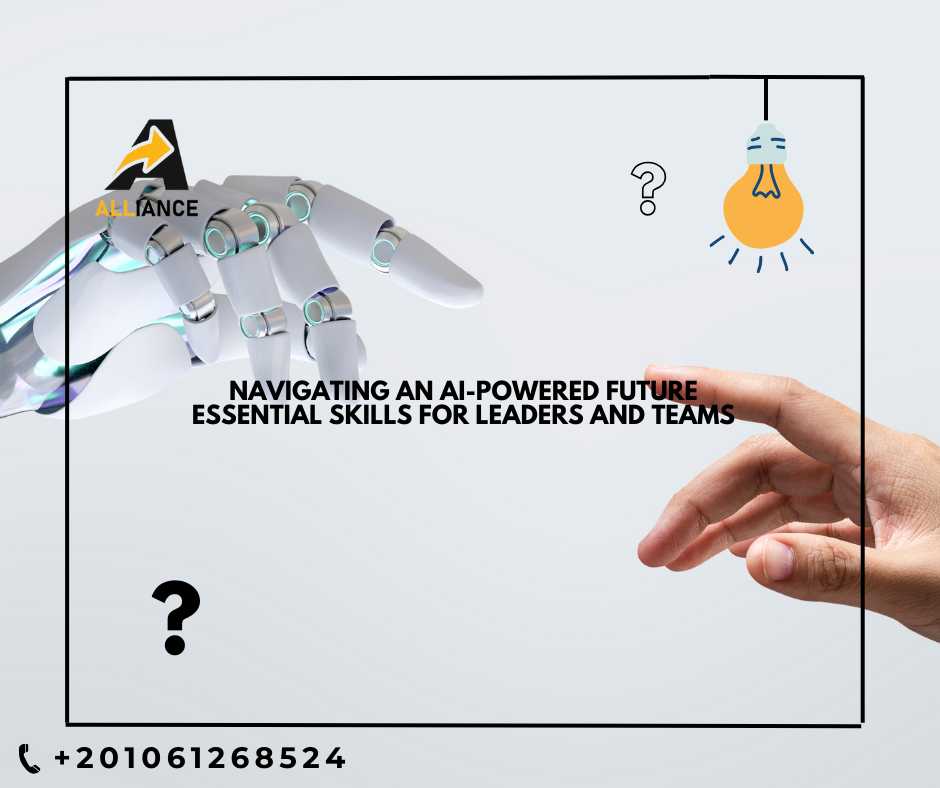Navigating an AI-Powered Future: Essential Skills for Leaders and Teams
In a rapidly evolving job market shaped by the rise of artificial intelligence (AI), leaders are recognizing the importance of acquiring a diverse skill set to stay ahead. According to a recent report, the three top skills that leaders believe are essential for the future are analytical judgment, flexibility, and emotional intelligence.
As AI continues to reshape the job market, organizations are urged to build diverse AI roles and skills. According to a Gartner report, AI is a team sport, and successful AI initiatives require collaboration between data scientists, data engineers, AI architects, and machine learning engineers. The team should work closely with business and IT experts to deliver successful AI projects.
Microsoft’s Identified Top Skills for an AI-Powered Future:
Microsoft identifies a set of skills essential for thriving in an AI-powered future:
Data Analysis and Interpretation
Critical Thinking and Decision-Making
Problem-Solving
Communication and Collaboration
Creativity and Innovation
Adaptability and Continuous Learning
Ethics and Accountability
Leaders, managers, and team members need to cultivate these skills to harness the potential of AI in their work successfully.
AI Job Market Growth in Asia:
LinkedIn reports significant growth in AI talent hiring in the Asia-Pacific region, outpacing overall hiring. Between 2016 and 2022, AI talent’s share grew by 565% in Singapore, 527% in Australia, and 487% in India. Interest in AI jobs in Singapore surged by 148.6% over the past five years, indicating the high demand for AI skills.
As AI development becomes a focal point in Asia, there’s a need for increased tech literacy among project leaders. While AI’s impact on the labor market is significant, the adoption of AI is predicted to increase the total value of goods and services worldwide by 7% in the next decade.
AI becomes an integral part of the workforce, and cultivating a blend of technical and soft skills is crucial for navigating the challenges and opportunities presented by an AI-powered future. The ability to adapt, learn continuously, and collaborate will be key in ensuring successful AI projects and staying competitive in the evolving job market.
Could A.I. take your job?
According to job portal Indeed, interest in AI jobs in Singapore grew 148.6% over the past five years, while the number of such job postings lagged behind, growing just 95% in the same period.
“Asia has emerged as a hub for AI development, research, and commercialization due to its huge potential for scaling returns,” said Karthik Sudhakar, Indeed’s senior manager for international strategy and operations.
In the face of the rapid growth of artificial intelligence (AI) and its potential impact on the job market, concerns about the future of employment have surfaced. However, a recent report by Goldman Sachs suggests that while AI is poised to have a significant influence on jobs, there are both challenges and opportunities to consider.
Addressing Concerns: The Impact of AI on Jobs
Goldman Sachs acknowledges the substantial impact AI is likely to have on the labor market. Nevertheless, the report provides a nuanced perspective, emphasizing that most jobs and industries are only partially exposed to automation. Rather than complete substitution, the prevailing trend is one of AI complementing human roles. This indicates that, in many cases, AI technologies are designed to enhance and support human capabilities rather than replace them entirely.
The report also offers an optimistic outlook by predicting that the widespread adoption of AI could contribute to a 7% increase in the total value of goods and services created worldwide over the next decade. This positive trajectory underscores the potential benefits that AI advancements can bring to various sectors and industries.
Historical Context and Adaptability: A Source of Optimism
To further allay concerns, the report references historical data, revealing that 60% of workers today are employed in jobs that did not exist in 1940. This historical context suggests that as industries evolve, new roles and opportunities emerge, and the workforce demonstrates resilience and adaptability.
For instance, the research highlights a significant rise in the number of individuals defining themselves as ‘professionals’ and notes a spike in administrative and clerical staff since 1940. This adaptability and evolution of the workforce over time indicate a capacity to navigate and thrive amid changing economic landscapes.
Conclusion: A Balanced Perspective on the AI Impact
While the impact of AI on jobs is a legitimate concern, Goldman Sachs’ report encourages a balanced perspective. Acknowledging the transformative potential of AI, the report suggests that, when appropriately leveraged, AI can contribute to economic growth and job creation. It emphasizes the importance of acquiring the essential skills needed to thrive in an AI-powered future, as discussed in our previous article.
In conclusion, as AI becomes an integral part of the workforce, understanding both the challenges and opportunities it presents will be crucial for individuals and organizations to adapt, succeed, and contribute to the positive evolution of the job market.
